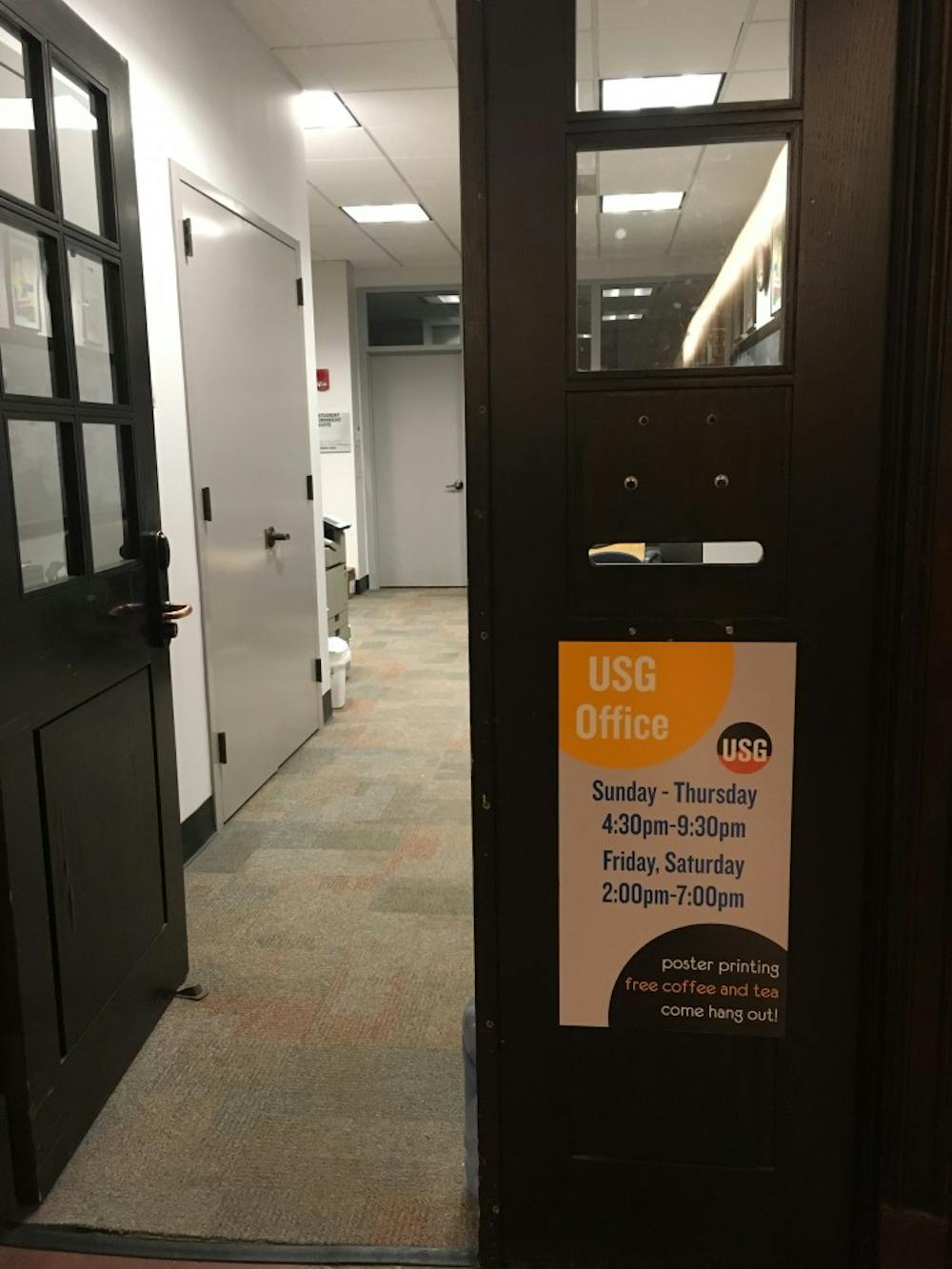In an April 9 email to the student body, the Undergraduate Student Government (USG) announced finalized referenda that will be on the ballot in the upcoming spring elections. Voting will be open for two days on the Helios voting system, starting Monday, April 15 at noon.
This year, four referenda have been proposed, with topics including environmental sustainability, the health threats of over-exposure to computer screens, Honor Code violation penalties, and appointment processes for Honor Committee membership and leadership.
Referendum Question No. 1 is sponsored by Claire Wayner ’22 on behalf of Princeton Student Climate Initiative. The referendum calls on the University to take “decisive action” in reducing carbon emissions in three key ways.
The referendum calls for the establishment of a task force with the goal of developing a strategy for tracking Scope III carbon emissions, the indirect emissions made by the University. It also petitions for a “clearer timeline” for meeting the University’s current goal of being carbon neutral by 2046. Finally, it asks that students be included in decision-making processes on strategies for achieving carbon neutrality.
“The referendum aims to send a message to the University administration that climate change is a significant issue of high priority to undergraduates,” Wayner wrote in an email to The Daily Princetonian.
She expressed her hope that the referendum would help administrators realize that “the majority of undergraduates want to play an active role moving into the future.”
Referendum Question No. 2 arises from a call to action to University administrators to educate students and protect them from the potentially life-altering eye health threats posed by modern computer screen use.
The referendum is sponsored by AJ Sibley ’19, who severely damaged his eyes through computer use during his time at the University five years ago, according to a statement he wrote to the ‘Prince.’ He now experiences “searing pain in most normal lighting conditions” and is “unable to use [a] computer for any extended length of time.”

During his multiple years of absence from the University, Sibley has devoted his time to research his eye condition.
“What I've come to realize is that there is still a widespread lack of awareness, both in the general population as well as among top experts in eye medicine regarding the impact of extensive screen use on our eyes,” he said. “With this referendum, I hope to ensure that no other Princeton student will find themselves in my situation.”
Specifically, the referendum calls for the installation of blue light protection software on campus computer screens for those who desire it, as well as an “annual health awareness initiative” which would make students cognizant of protection methods.
“Even if just one fewer student has to go through this condition, I would consider it my proudest accomplishment,” Sibley added.

Referendum Question No. 3 was put forth by Elizabeth Haile ’19 on behalf of the Joint Honor Committee and the USG Academics Subcommittee on Academic Integrity Reconciliation Report Implementation.
The referendum calls for the removal of the “standard penalty” from the Honor Constitution — which is currently a one-year suspension for most violations and disciplinary probation for violating exam time limits — and an increase in the “range of available penalties for Honor Code violations.”
Under the referendum, a “reprimand” would be established as a potential penalty for minor first-time offenses, particularly overtime violations. The possibility for a one-semester suspension would also be added, along with an increased range of probation periods, in monthly increments.
Referendum Question No. 4 also pertains to the Honor Committee and is sponsored by Christopher Umanzor ’19, a member of the Honor Committee.
The referendum asks for an amendment to the Honor Constitution to change the compositions of the subcommittees which select the Clerk and the appointed membership of the Honor Committee.
According to the explanation of the referendum submitted by Umanzor, its aim is “to democratize how the membership and leadership of the Honor Committee are selected,” creating a more transparent, inclusive, and representative process.
Haile and Umanzor did not respond to requests for comment from the ‘Prince’ at the time of publication.








